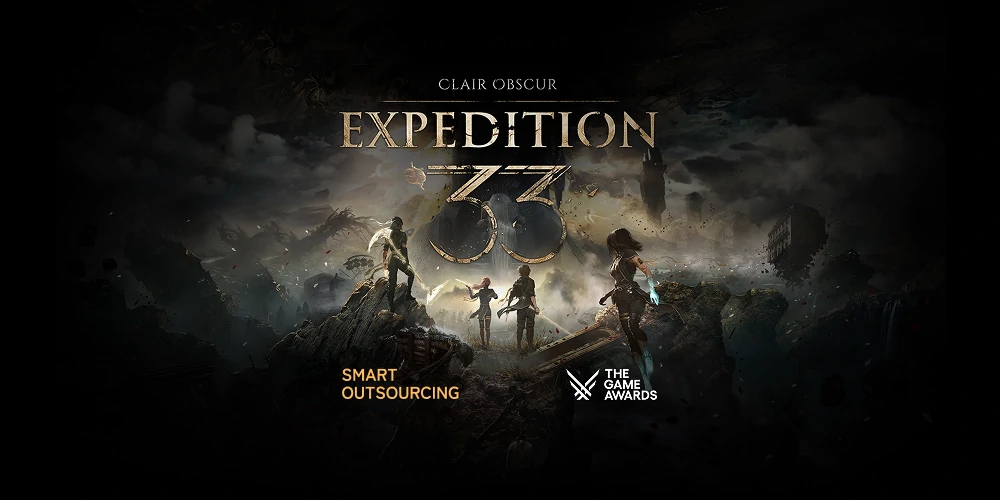
The Rise of Investing in Blockchain Again: Why They Started
KEY POINTS OF THE ARTICLE
- The cryptocurrency market has experienced a resurgence, with Bitcoin and other cryptocurrencies reaching all-time highs.
- Entrepreneurs are betting big on blockchain again, as evidenced by the success stories of blockchain in business and its role in enhancing business operations.
- Analyzing the return on investment (ROI) for blockchain projects and implementing risk management strategies.
- Navigating the blockchain ecosystem requires understanding key players in the space and choosing the right blockchain technology for your business.
- The future of blockchain in business and investing.
Introduction
Since Bitcoin’s creation in 2009, cryptocurrencies have seen exponential growth, surpassing a collective worth of $1 trillion. This surge has captivated global investors, sparking a renewed interest in blockchain technology. Cryptocurrencies have transitioned from novelties to trillion-dollar disruptors in just over a decade, with assets like Bitcoin and Ethereum gaining popularity for transactions.
Factors driving this interest include the approval of Bitcoin Spot ETFs by the SEC and the upcoming Bitcoin halving event. Beyond these events, the ascent of DeFi has showcased blockchain’s potential to revolutionize industries beyond cryptocurrency. Businesses are embracing blockchain integration, prompting entrepreneurs to explore its financial implications and ROI analysis.
While challenges persist in blockchain adoption, understanding key players and selecting the right technology is essential for businesses. Overcoming obstacles will be crucial for leveraging blockchain’s potential and capitalizing on emerging trends in various industries.
The Resurgence of Blockchain Interest
The renewed interest in blockchain technology is fueled by various factors, such as the approval of Bitcoin ETFs by the SEC, upcoming Bitcoin halving event, and the potential to revolutionize the financial system. Blockchain’s benefits include enhanced security, transparency, and efficiency in financial transactions. The rise of DeFi has also highlighted blockchain’s broader applications beyond cryptocurrency, attracting significant investment. This resurgence positions blockchain as a technology with substantial growth potential.
Key Drivers Behind the Renewed Interest
The renewed interest in blockchain is driven by its decentralized nature, offering increased security and transparency without the need for a central authority to validate transactions. Beyond cryptocurrency, blockchain has the potential to revolutionize industries like real estate and is being explored by central banks for creating digital currencies. This interest stems from blockchain’s transformative capabilities in various sectors, fueling significant growth potential.
Comparing Past and Present Blockchain Technologies
When comparing past and present blockchain technologies, it becomes evident that significant advancements have been made. In the past, blockchain technology was primarily associated with cryptocurrencies like Bitcoin. However, today’s blockchain technologies have evolved to support a wide range of digital assets and applications.
One notable advancement is the increased regulatory oversight of crypto exchanges. In the past, crypto exchanges operated in a largely unregulated environment, leading to concerns about security and fraud. Today, regulatory bodies like the U.S. Securities and Exchange Commission (SEC) have implemented measures to ensure the security and integrity of crypto exchanges, increasing investor confidence in the technology.
Another significant development is the increased adoption of blockchain technology by traditional financial institutions. In the past, blockchain was often seen as a threat to traditional financial systems. However, many financial institutions now recognize the potential of blockchain technology to enhance their operations and offer new financial products and services.
Overall, the advancements in blockchain technology have resulted in increased regulatory oversight, the expansion of digital asset offerings, and the adoption of blockchain by traditional financial institutions. These advancements have played a crucial role in driving the renewed interest in blockchain and have positioned blockchain technology as a key driver of innovation in the financial industry.
Understanding Blockchain Fundamentals
To fully grasp the significance of investing in blockchain, it’s essential to understand the fundamentals of this transformative technology. At its core, blockchain is a decentralized and transparent ledger that securely records transactions. Unlike traditional centralized systems, blockchain relies on a network of computers, known as nodes, to validate and verify transactions.
Each transaction is grouped into a block, which is then added to a chain of previous blocks, creating an immutable and tamper-proof record. This decentralized and transparent nature of blockchain offers numerous benefits, including increased security, traceability, and efficiency.
Understanding these fundamentals is crucial for investors looking to capitalize on the potential of blockchain technology. By investing in blockchain, individuals and businesses can tap into a transformative technology that has the potential to revolutionize industries and reshape the global financial system.
Decoding Blockchain Technology for Entrepreneurs
For entrepreneurs, understanding the intricacies of blockchain technology is vital for leveraging its potential in their businesses. One key aspect of blockchain technology is bitcoin mining, the process by which new bitcoins are created and transactions are validated. Bitcoin mining operates on the principle of proof of work, where miners compete to solve complex mathematical problems to validate transactions and add them to the blockchain.
However, it’s important to note that blockchain technology is not limited to cryptocurrencies and bitcoin mining. Blockchain has the potential to revolutionize various industries beyond finance, such as supply chain management, healthcare, and voting systems. Its decentralized and transparent nature offers increased security and transparency, reducing the risk of fraud and tampering.
While blockchain technology offers numerous benefits, it’s important to address the concerns surrounding its use in illicit activities. The pseudonymous nature of transactions on the blockchain has raised concerns about its potential use in money laundering and other illegal activities. However, advancements in blockchain analytics and regulatory oversight have made it increasingly difficult for illicit activities to go unnoticed on the blockchain.
By understanding these aspects of blockchain technology, entrepreneurs can harness its potential to streamline business processes, enhance security, and create new opportunities for growth and innovation.
How Blockchain is Revolutionizing Industries Beyond Cryptocurrency
Blockchain technology is not limited to revolutionizing the financial industry. It has the potential to transform various industries beyond cryptocurrency, offering new opportunities and efficiencies. One significant area of transformation is the use of blockchain for digital currencies.
Traditional fiat currencies are controlled by central banks and are subject to inflation and manipulation. However, blockchain-based digital currencies offer a decentralized and transparent alternative. These digital currencies, such as Bitcoin and Ethereum, are not controlled by any central authority and provide a secure and efficient medium of exchange.
In addition to digital currencies, blockchain technology is revolutionizing industries such as supply chain management, healthcare, and identity verification. By leveraging blockchain, businesses can create transparent and traceable supply chains, improve patient data security, and streamline identity verification processes.
The adoption of blockchain technology by businesses and governments around the world is driven by the potential for increased efficiency, security, and transparency. Crypto investors are recognizing the value of blockchain beyond cryptocurrency and are investing in projects that leverage this transformative technology.
Overall, blockchain technology is revolutionizing industries beyond cryptocurrency, offering new possibilities for businesses, governments, and individuals. By embracing blockchain, businesses can stay ahead of the curve and tap into the transformative power of this technology.
Why Entrepreneurs Are Betting Big on Blockchain Again
Entrepreneurs are increasingly placing their bets on blockchain technology once more. The renewed interest stems from the potential for decentralized systems to revolutionize various industries beyond cryptocurrency. Smart contracts and tokenization are reshaping how transactions are conducted, offering secure and transparent processes. Entrepreneurs see blockchain as more than just a medium of exchange; it represents a fundamental shift towards efficiency and trust within business operations. The ability to tokenize real-world assets and automate processes through smart contracts holds immense promise for driving innovation and streamlining operations. This resurgence signifies a growing confidence in blockchain as a transformative technology with applications far beyond its initial use in digital currencies.
Success Stories of Blockchain in Business
Blockchain technology has already demonstrated its potential for success in various industries. In the financial sector, blockchain has the potential to revolutionize lending and borrowing by eliminating the need for intermediaries and reducing interest rates. By leveraging blockchain, businesses can create transparent and efficient lending platforms that provide better access to capital for individuals and businesses.
In addition to financial services, blockchain has the potential to transform other industries, such as healthcare. By securely storing patient data on the blockchain, healthcare providers can improve data security and ensure the privacy of personal information. Blockchain can also streamline identity verification processes, reducing fraud and improving efficiency.
Another success story of blockchain in business is its role in the energy sector. Blockchain technology can enable peer-to-peer energy trading, allowing individuals and businesses to buy and sell renewable energy directly, reducing reliance on traditional energy providers.
These success stories highlight the potential of blockchain technology to revolutionize industries and drive innovation. Entrepreneurs who embrace blockchain can tap into these opportunities and create businesses that leverage the transformative power of this technology.
Blockchain’s Role in Enhancing Business Operations
Blockchain technology offers a transformative impact on business operations by improving efficiency, transparency, and security. Through the use of smart contracts and decentralized ledgers, companies can streamline processes, reduce costs, and mitigate fraud risks. By eliminating the need for intermediaries and enhancing the traceability of transactions, blockchain empowers businesses to build trust with stakeholders. Additionally, the immutability of data on the blockchain ensures the integrity of records, benefiting industries like supply chain management and healthcare where data accuracy is critical. Overall, blockchain’s potential to revolutionize how businesses operate underscores its growing appeal across various sectors.
The Financial Implications of Investing in Blockchain
Investing in blockchain carries significant financial implications. With the volatility of cryptocurrency prices and the potential for substantial gains or losses, it is often viewed as a speculative investment. However, the underlying blockchain technology offers more stability and potential long-term value. For financial institutions, utilizing blockchain can streamline processes, reduce transaction fees, and enhance security. Despite concerns about regulatory hurdles and security risks associated with illicit activities, the benefits of blockchain adoption in various industries are increasingly recognized. Understanding the financial impact of blockchain investments is crucial as the technology continues to reshape traditional financial systems and unlock new opportunities for businesses and investors.
Analyzing the Return on Investment (ROI) for Blockchain Projects
Analyzing the return on investment (ROI) for blockchain projects is essential for investors looking to maximize their financial gains. The ROI for blockchain projects can be influenced by various factors, including cryptocurrency prices, market conditions, and regulatory developments.
The volatility of cryptocurrency prices can significantly impact the ROI for blockchain investments. The value of cryptocurrencies, such as Bitcoin and Ethereum, can experience significant fluctuations, creating both opportunities and risks for investors.
Additionally, blockchain investments can be considered as a new asset class, offering diversification benefits for investors. By including blockchain investments in a diversified portfolio, investors can potentially reduce risk and enhance overall returns.
When analyzing the ROI for blockchain projects, it’s important to consider not only short-term price movements but also the long-term potential of blockchain technology. As blockchain continues to gain mainstream adoption and disrupt various industries, the potential for significant ROI in the long run is considerable.
Risk Management Strategies for Blockchain Investments
Diversification is a fundamental risk management strategy when investing in blockchain. Spread investments across various digital assets to mitigate specific asset risks. Additionally, staying informed about market trends and regulatory changes is crucial for making sound investment decisions. Implementing stop-loss orders can limit potential losses in times of market volatility, safeguarding your capital. Conduct thorough research on the projects you invest in to assess their viability and potential return on investment. Regularly review and update your investment portfolio to stay aligned with your risk tolerance and investment goals.
Navigating the Blockchain Ecosystem
Navigating the blockchain ecosystem can be complex, but understanding the key players and choosing the right blockchain technology is essential for success. The blockchain ecosystem encompasses various participants, including cryptocurrency exchanges, financial institutions, developers, and regulators.
To navigate the blockchain ecosystem, entrepreneurs and investors should familiarize themselves with the leading cryptocurrency exchanges, such as Coinbase and Binance. These exchanges provide platforms for trading cryptocurrencies and accessing blockchain-based assets.
Additionally, understanding the role of financial institutions in the blockchain ecosystem is crucial. Traditional banks and financial institutions are increasingly exploring blockchain technology for various applications, including cross-border payments and remittances.
Choosing the right blockchain technology for your business requires careful consideration of factors such as scalability, security, and compatibility with existing systems. By understanding the key players in the blockchain ecosystem and choosing the right technology, entrepreneurs and investors can position themselves for success in this rapidly evolving industry.
Key Players in the Blockchain Space
IBM, a prominent player in the blockchain space, leverages its expertise in technology to offer blockchain solutions for various industries. Ripple, known for its digital payment protocol, provides efficient cross-border payment solutions using blockchain technology. Ethereum, with its smart contract capabilities, has revolutionized the way decentralized applications are built and operated. Another key player is ConsenSys, a leading blockchain software technology company focusing on decentralized applications. These companies are at the forefront of driving innovation and adoption of blockchain technology across different sectors, showcasing the diverse applications and potential of this transformative technology.
How to Choose the Right Blockchain Technology for Your Business
Choosing the right blockchain technology for your business requires careful consideration of several factors. One key consideration is the scalability of the blockchain technology. Scalability refers to the ability of a blockchain to handle a large number of transactions. Businesses with high transaction volumes should choose a blockchain technology that can scale to meet their needs.
Another important factor to consider is the number of coins or tokens associated with the blockchain technology. Some blockchain technologies have a limited supply of coins or tokens, while others have an unlimited supply. This can impact the value and potential growth of the coins or tokens.
Additionally, businesses should consider the development community behind the blockchain technology. A vibrant and active development community indicates ongoing innovation and support for the technology.
Lastly, businesses should consider the security and consensus mechanisms of blockchain technology. The security measures in place should provide confidence in the integrity and immutability of the blockchain.
By considering these factors and conducting thorough research, businesses can choose the right blockchain technology that aligns with their specific needs and goals.
The Future of Blockchain in Business and Investing
The future of blockchain in business and investing holds immense potential for growth and innovation. As blockchain technology continues to mature and gain mainstream adoption, its impact on various industries will become more pronounced.
Emerging trends in blockchain technology include the continued development of decentralized finance (DeFi), the expansion of non-fungible tokens (NFTs), and the integration of blockchain with emerging technologies such as artificial intelligence (AI) and the Internet of Things (IoT).
Furthermore, predictions for blockchain adoption in various industries suggest that blockchain will play a crucial role in transforming sectors such as supply chain management, healthcare, and digital identity verification.
By staying informed about emerging trends and predictions, businesses and investors can position themselves at the forefront of blockchain innovation and tap into the multitude of opportunities that lie ahead.
Emerging Trends in Blockchain Technology
Emerging trends in blockchain technology offer a glimpse into the future of this transformative technology. One significant trend is the continued development of the Ethereum network, which enables the execution of smart contracts and the creation of decentralized applications (dApps). The Ethereum network has opened up new possibilities for blockchain technology beyond simple transactions, allowing for the creation and execution of complex computer code on the blockchain.
Another emerging trend is the integration of blockchain with other emerging technologies, such as AI and IoT. This integration has the potential to create innovative solutions and unlock new use cases for blockchain technology.
Furthermore, the expansion of blockchain networks beyond cryptocurrencies and into other industries, such as supply chain management and digital identity verification, is gaining momentum. Blockchain networks provide transparency, security, and trust, making them ideal for applications where data integrity is crucial.
By staying informed about these emerging trends, businesses and investors can position themselves to capitalize on the transformative power of blockchain technology and drive innovation in their respective industries.
Predictions for Blockchain Adoption in Various Industries
Predictions for blockchain adoption in various industries offer insights into the potential impact of blockchain technology in the future. One prediction is the potential for blockchain to revolutionize financial transactions, reducing transaction fees and increasing efficiency. By eliminating intermediaries and streamlining processes, blockchain has the potential to transform the way financial transactions are conducted.
Another prediction is the use of blockchain technology to enhance security and transparency in supply chain management. Blockchain can provide an immutable and transparent record of every transaction and movement of goods, reducing the risk of fraud and counterfeiting.
Furthermore, blockchain technology has the potential to disrupt the stock market by enabling the creation of decentralized exchanges and the tokenization of assets. This could democratize access to investment opportunities and increase liquidity in the market.
However, it’s important to note that blockchain technology also presents challenges, such as its potential use by terrorist organizations for illicit activities. As blockchain adoption increases, regulators and law enforcement agencies will need to develop strategies to address these challenges and ensure the responsible use of blockchain technology.
By considering these predictions, businesses and investors can anticipate the potential impact of blockchain technology in their respective industries and position themselves for success in the evolving landscape.
Overcoming Challenges in Blockchain Adoption
Blockchain adoption faces security concerns due to the immutable and decentralized nature of the technology. Securing personal information and preventing fraudulent activities are paramount. Additionally, regulatory compliance poses challenges, especially in financial institutions. Ensuring data integrity and protecting against cyber threats are ongoing tasks. To combat illicit activities, NLP algorithms are leveraged for monitoring transactions in real-time. Legal and regulatory hurdles vary globally, impacting blockchain entrepreneurs. Collaboration with regulatory bodies is crucial to navigate the evolving landscape of blockchain compliance. Overcoming security and regulatory challenges will be pivotal in mainstream adoption across industries.
Addressing Security Concerns in Blockchain Applications
Security concerns in blockchain applications revolve around safeguarding against unauthorized access, data breaches, and malicious attacks. With the decentralized nature of blockchain networks, securing personal information and transactional data is paramount. Implementing robust encryption techniques, multi-factor authentication, and regular security audits are crucial in mitigating risks. Smart contracts, a fundamental aspect of blockchain technology, must undergo rigorous code reviews to eliminate vulnerabilities. Moreover, educating users about best practices in securely managing their digital assets is essential to prevent losses due to hacking or phishing schemes. Continuous advancements in security protocols and collaboration with regulatory bodies are imperative to build trust and foster widespread adoption of blockchain applications.
Legal and Regulatory Hurdles for Blockchain Entrepreneurs
Navigating the legal and regulatory landscape can be a significant challenge for blockchain entrepreneurs. Regulations vary widely across different jurisdictions, leading to compliance complexities. One major hurdle is the uncertainty surrounding the classification of digital assets and cryptocurrencies by government bodies. The lack of standardized regulations often hinders the growth and adoption of blockchain technology in commercial applications. Additionally, concerns around anti-money laundering (AML) and know your customer (KYC) regulations pose operational challenges for blockchain startups. Overcoming these obstacles requires collaboration between industry players and regulators to establish clear frameworks that balance innovation with consumer protection. An evolving regulatory environment necessitates constant monitoring and adaptation to ensure compliance and promote the sustainable development of blockchain ventures.
Conclusion
As the blockchain interest resurfaces, entrepreneurs are diving back into this revolutionary technology. With success stories showcasing its impact on business operations and enhancing financial implications, the future of blockchain holds promising trends and predictions across various industries. Navigating the blockchain ecosystem requires understanding key players and choosing the right technology for your business. Overcoming security concerns and legal hurdles is essential for seamless integration. Are you ready to embrace the potential of blockchain? Get in touch to explore how you can leverage this transformative technology for your business!

































